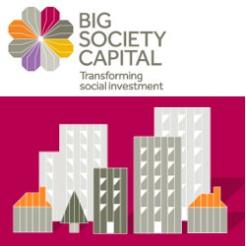Big Society Capital will focus on unsecured lending for the charity sector and helping communities take over assets, over the coming months.
Speaking at an All-Party Parliamentary Group on social enterprise organised by Social Enterprise UK yesterday, Nick O’Donohoe, chief executive of Big Society Capital, said that while it had made good progress in building the social investment market, there were still issues it needed to address.
O’Donohoe said it needed to look at how to get unsecured lending to the charity sector: “We need to look at how we reconcile creating sustainable intermediaries and giving finance to charities at a price they can meet,” he said.
O’Donohoe said he understood that there was frustration at the price of unsecured capital. “It’s more expensive than it should be,” he admitted, but added: “If we don’t create a sustainable intermediary we won’t grow pools of lending.”
He said tax reliefs for social investment, promised in the recent Budget, would reconcile this tension. “If people can give capital at an affordable price, we will be able to lend it at an affordable price,” he said.
Big Society Capital has recommended that any new tax relief for social investment focuses on regulated social sector organisations: “Some 25 per cent of SMEs see themselves as social companies,” O’Donohoe warned. “We don’t want the tax relief being used by an ill-defined group. We want to focus on risk capital being directed at regulated social sector organisations.”
Sir Stephen Bubb, chief executive of Acevo and chair of Social Investment Business, has long called for more simple loan finance for the charity sector and welcomed Big Society Capital's move. He said: "Social investment should not just be about complex social impact bonds - there is huge unmet demand for simple loans in our sector. It is absolutely right that a priority for Big Society Capital should be to stimulate more simple lending to charities and social enterprises."
Community assets
O’Donohoe also said that Big Society Capital wanted to support communities taking ownership of assets. “There is a lot going on in communities,” he said. “But there is fragmented funding which is in silos and there is a need for a vehicle to bring that together potentially.”
He also said that changes to government policy, such as the changes to the delivery of probation services, the mutual agenda and reform of the NHS, would mean that social enterprises would need capital to participate.
Education was another area which O’Donohoe highlighted. “This is an area where social enterprises have a competitive advantage,” he advised. “Schools would rather commission from a social enterprise than a private firm.”
Social investment progress “painfully slow”
Labour MP Hazel Blears, a longstanding political supporter of the social enterprise movement, also spoke at the event. She said while progress had been made with the social investment market, it was still “painfully slow and lacked reach and scale”.
“How do we get into those local communities at the sharp end?” she said. “If we lose capacity there it is very hard to rebuild it.”
Blears added that if pension funds did not start investing in the social investment sector, it would not reach scale.
Blears also praised social impact bonds in her speech, calling the first social impact bond in Peterborough “inspirational”.
“There are lots of policy areas where social impact bonds can make a big difference,” she said. “Therefore we need an advocate for them.”
She also noted that Big Society Capital was limited by a rigid framework in legislation with a defined remit. “It’s frustrated as it can’t address need as it sees it,” she warned.
Earlier in the event, O’Donohoe admitted that it was frustrating that Big Society Capital was not able to support certain types of CDFIs.









